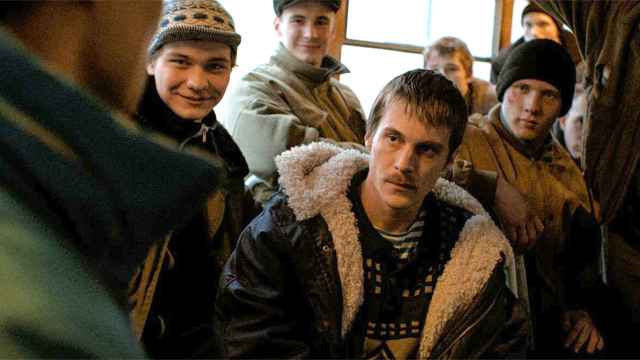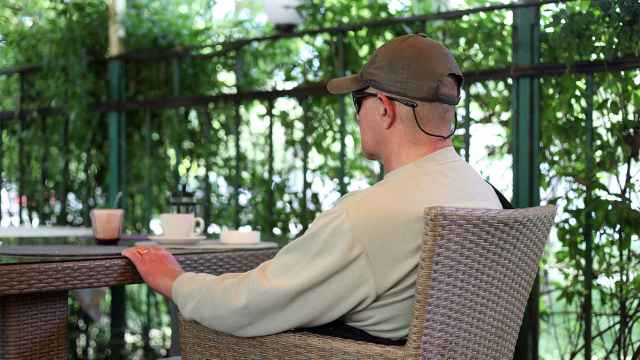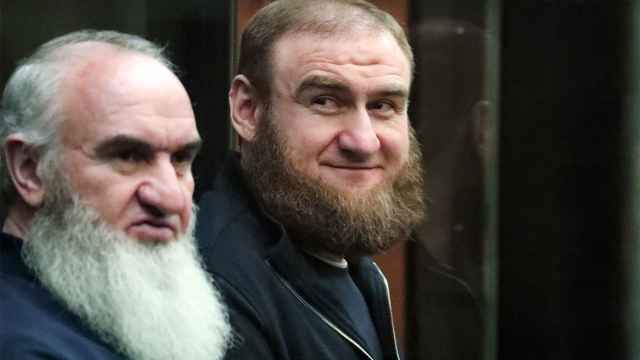The wildly popular television series Slovo Patsana (patsan being a Russian word for a street-wise young man) — or “The Boy’s Word” — transported Russian viewers back to the 1980s, the time of the infamous Kazan Phenomenon, in which the capital of Tatarstan was divided between gang fiefdoms. In the subsequent decade organized crime and gang violence became a defining phenomenon across Russia.
Toward the end of the 2000s, the violence subsided as the state became stronger. Former gang leaders who had not been killed in gang battles or incarcerated managed to become legal businessmen or enter the structures of government. Some former patsany even became members of the State Duma or university rectors. Today, their violent street ethos continues to reverberate through Russian culture and society, shaping how the people and state perceive strength.
Under President Vladimir Putin, one’s past as a patsan — which in the Soviet Union was hardly a point of pride — turned into a mark of heroic masculinity. Even before he held the office, Putin would reference his youth on the streets of Leningrad. He told the journalists who interviewed him for his first biography, “I was a hooligan, not a young pioneer … I really was a bad boy.”
The message to the public was that the lessons he learned on the streets would help him to become a great Russian leader — a strong, decisive man, ready for any confrontation and prepared to make sure that neither he nor the country were taken advantage of.
In a 2000 interview with Mikhail Leontiev, Putin interrupted the journalist’s statement about the International Monetary Fund making demands of Russia by saying: “Whoever slights us will not live three days. Don’t even talk about ‘slights’.”
According to the street gang code, it is forbidden to complain about a slight. Only a victim would admit one’s weakness like that. A real patsan would not complain, but retaliate with force.
Being perceived as weak inevitably opens oneself up to attack. In 2004 Putin said that the perpetrators of the Seige of Beslan and their supporters were taking advantage of Russia's weakness. “The weak get beaten. Some people will try to snatch the best food from our plates, while others will support and assist them.”
Later, speaking at the 2015 Valdai Forum, Putin justified Russia's decision to intervene in the Syrian civil war by saying, “Fifty years ago, the streets of Leningrad taught me the rule: If a fight is inevitable, you must strike first.”
Putin evidently believes that by referencing his youth on the streets he is sending his Russian audience a signal that he is a man of, and from, the people. He is trying to show he is neither a friend of the rich oligarchs nor a member of the liberal elite that let the country go to the dogs in the 1990s. By doing so, he hopes to find a ready and positive response from the public.
His popularity ratings show that he is right. Putin’s macho posturing — coupled with his aggressive foreign policy and firm grip over power at home — finds a ready audience among a significant part of the Russian public. This comes not just from “sofa warriors” who support Russia’s war in Ukraine while sitting at home watching television, but from members of violent gangs, who have traditionally been antagonistic to the state.
While interviewing members of street criminal gangs for my book, I heard a lot of praise for Putin. As one gang member said: “Putin has shown that he’s not going to take any crap from anyone. That sort of guy gets respect, both on the street level and in international relations.”
Following Putin’s lead, members of the Russian government also pepper their public pronouncements with references to the world of the patsany. In February 2022, as Moscow’s troops loomed at Ukraine’s borders, Foreign Minister Sergei Lavrov said that Russia would be seeking a fair deal in its security dialogue with the U.S. “I don't want to resort to jargon, but we have a saying, ‘What the patsan said, the patsan did.’ Such ponyatiya [street and criminal norms] should be respected at the international level as well.”
To understand Putin and his popular support in Russia, we must remember that street culture, despite its stigmatization by the Soviet state, had a profound importance in Russian society even before its glory days of the 1980s and 1990s.
Generations of Russian men learned some of their most important life lessons on the streets where they grew up. In group fights with their enemies from rival neighborhoods and courtyards, or defending themselves from violent assaults, they learned how to feel and act like “real men”; how to stand one’s ground and strike first; and never to betray fear. They learned to walk and talk like people nobody would even dare to challenge.
Street patsany share an obsession with respect. They are terrified of being seen as indecisive, and look at young men who avoid the character-building streets in favor of staying at home with their textbooks with disdain. Protecting your turf and always being on the lookout for potential intruders becomes imperative for a street patsan, as does being loyal to the members of one’s group and covering their backs in fights.
Former criminals who have been able to command the respect of street youth have always been influential figures in urban neighborhoods. According to human rights defender Valery Abramkin, one in four Russian men has experienced detention or incarceration. This means that prison culture, with its romanticized image of criminal outlaws, songs and slang, has always been within easy reach in working-class city quarters. The street absorbed this culture like a sponge, and successive generations of Russian men learned the language that is now often heard from public tribunes.
In Marina Yusupova’s study of constructions of masculinity among ordinary Russian men, people far removed from the world of the streets used derogatory criminal slang when talking about homosexuality. This deep penetration of street and criminal stigmatization of homosexuality into wider Russian culture helps us to understand the popularity of the anti-LGBTQ+ agenda promoted by Putin’s regime.
The brief but considerable popularity of mercenary boss Yevgeny Prigozhin, a former convict who not only demonstrated victories on the battlefield, but also publicly refused to accept “f*****s” into the Wagner Group, also shows how close the world of criminal culture is both to that of the government and the public.
In its mobilization drive for the war, the state both bribes Russian men – offering huge rewards for those who join voluntarily – and appeals to their perception of manhood. The readiness for violence, the fear of being seen as a coward, and the imperative to protect one’s mates are all engaged by military recruitment messaging to attract soldiers to the front and make them stay there.
The figure of the patsan has become a personification of warrior masculinity, and the need to support “our patsany” has become a rallying call for pro-war journalists (voenkory) and patriotic members of the public. In this sense the patsan, has become a key figure in wartime Russian society — now less of a hooligan and more of a hero.
The culture, supported by the state, makes violence a socially acceptable choice. This directly contributes to Russia’s homicide rate being higher than any other European country, and to enormous rates of domestic violence. In the Violent Societies Index, Russia ranked among the top 10 most violent societies in the 1990s and the 2000s.
For the violent trajectory on which the current political regime put the country to come to end, Russia will not just have to reassess its foreign and military policy, but address the culture of violence that is influencing both its leaders’ decision-making and the wellbeing of society. Without such a reckoning, violence will continue to shape the country’s relationship with its neighbors, and its own development.
A Message from The Moscow Times:
Dear readers,
We are facing unprecedented challenges. Russia's Prosecutor General's Office has designated The Moscow Times as an "undesirable" organization, criminalizing our work and putting our staff at risk of prosecution. This follows our earlier unjust labeling as a "foreign agent."
These actions are direct attempts to silence independent journalism in Russia. The authorities claim our work "discredits the decisions of the Russian leadership." We see things differently: we strive to provide accurate, unbiased reporting on Russia.
We, the journalists of The Moscow Times, refuse to be silenced. But to continue our work, we need your help.
Your support, no matter how small, makes a world of difference. If you can, please support us monthly starting from just $2. It's quick to set up, and every contribution makes a significant impact.
By supporting The Moscow Times, you're defending open, independent journalism in the face of repression. Thank you for standing with us.
Remind me later.








